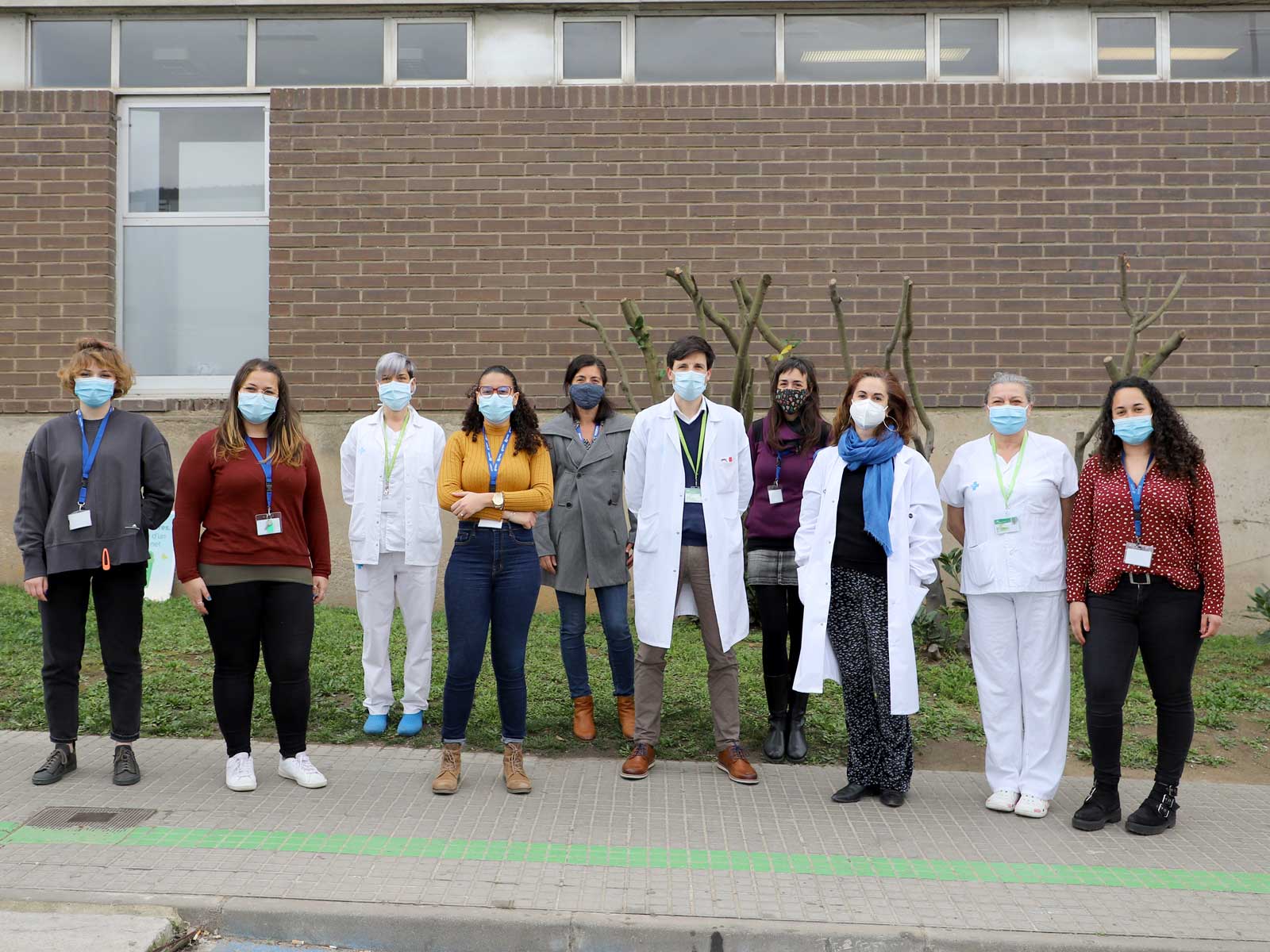The start of a new international clinical trial to improve treatment for tuberculosis with anti-inflammatory agents

- The Experimental Tuberculosis Group at the IGTP has set up this trial, coordinated from Can Ruti, within the European project H2020 'SMA-TB'
- The study will evaluate the efficacy and safety of adding acetylsalicylic acid or ibuprofen to the antibiotic treatments applied for tuberculosis
- It is a phase II trial which will be carried out in South Africa and Georgia, two of the countries the WHO has in its sights to control this infectious disease
- The trial has been prepared in the midst of the pandemic, with the added challenge of coordinating it with the restrictions and different stages of the epidemic in each of the countries involved
The team led by Dr Cristina Vilaplana, of the Experimental Tuberculosis Unit at the Germans Trias i Pujol Research Institute (IGTP) on the Can Ruti Campus in Badalona, has set up and is coordinating the international clinical trial to collect data on the potential efficacy of combining two existing medications, acetylsalicylic acid (ASA) and ibuprofen, as adjuvant therapy to the standard treatments for tuberculosis. It is known that this combination can diminish lung inflammation considerably and so improve the quality of life of patients. However, not everyone benefits the same way, so the researchers will use the data from the trial to generate a medical algorithm that will allow them to stratify patients and advance towards a personalized treatment for tuberculosis. The study is part of the H2020 'SMA-TB' Project (GA 847762) coordinated from Can Ruti which has a team of 67 people from 9 institutions from 7 different countries. The Pharmacy team from the Germans Trias i Pujol has also participated by preparing the treatments, which have been sent to the centres where the trial is being carried out and so have research personnel from the IDIAP Jordi Gol Foundation, who have carried out the randomization for the clinical trial.
This week the first patient from South Africa has been included in the clinical trial. It is a phase II randomized double-blind study, with a placebo control, which will last three and a half years. The 354 patients participating are receiving treatment for tuberculosis at the Perinatal HIV Research Unit (PHRU) in Soweto and Matlosana (South Africa) and the National Centre for Tuberculosis and Lung Disease (NCTLD) in Tbilisi (Georgia). The World Health Organization (WHO) is implementing specific monitoring measures in these two countries due to the high levels of prevalence of tuberculosis.
The ultimate objective of the clinical trial, as part of the European project SMA-TB is to improve clinical management of patients and personalize the treatment for tuberculosis based on host-directed treatments; a new type of complementary treatment that focusses on boosting the patient's defences and so their ability to fight off the disease. "Our group has been working on the use of aspirin and other anti-inflammatories for this purpose for some time. The main idea is that at the moment all tuberculosis patients are treated the same way and, as we understand that we are all different, we want to find a way to provide more personalized medicine," explains Dr Cristina Vilaplana, researcher at the IGTP and CIBERES and the coordinator of SMA-TB.
Treatment for tuberculosis lasts a long time and its success depends on the strain of bacteria causing each case. They are tedious treatments for the patients and with a high cost for health systems. "If we could use these alternative treatments successfully, we could shorten the length of the treatment and obtain better results for the patients," considers Vilaplana.
An international clinical trial in a pandemic
The trial is commencing a year after the project started, some months later than planned, but it has been started in record time with minimum delay, especially given the current context. "We are starting only 8 months late. It is important to stress this, just bearing in mind the circumstances," underlines Dr Vilaplana. The WHO declared a pandemic just one week after the kick-off meeting of the project consortium and from that moment all the paperwork suffered the different rhythms of the Covid-19 waves in the countries involved. "When we were coming out of the first wave here and the Ethics Committee could evaluate the protocol, cases were starting to appear in South Africa. When we had the medication ready to send all the flights from London were cancelled due to the appearance of the British variant. But we have a great team, both here and with all our partners, which has continued working on what has been an authentic obstacle race," explains Vilaplana.
On top of this, there is increasing evidence that the Covid-19 pandemic has a negative effect on the monitoring and control of other diseases and tuberculosis is no exception. In its annual report the WHO highlights the threat that the pandemic poses to the progress made to reduce the effects of tuberculosis globally; it estimates an increase in deaths from the disease of an order of 0.2-0.4 million people just in 2020, due to the interruption of healthcare. "In fact, the members of our consortium attended 8 sick people a week before; and now they see 1 or 2. This is devastating, because it doesn't mean there are fewer cases of tuberculosis, but that the sick are not reaching the system. We still don't know the full extent of the impact of the pandemic on this and other diseases," comments Vilaplana. Tuberculosis is one of the main causes of death in the world and the biggest cause of death by infectious agents (bigger than HIV/AIDS).
"2020 has shown up what researchers already knew, that you need the collaboration of several research disciplines and even more so in the field of infectious diseases," comments Vilaplana. The SMA-TB project is based on this collaboration and has an additional complementary objective of developing the protocols and tools (videos, tutorials, templates etc) to be available to the research community. As well as documents strictly concerned with scientific protocols, or the clinical trial, they have also developed teaching aids, such as this video, made by the Barcelona design studio Bicoté, which summarizes what the trial consists of and serves to inform patients who are participating. "At the moment the materials we are generating are available to the members of the consortium, but they will soon be openly available. We work with public funding and we want to share all the knowledge and tools we produce," concludes Vilaplana.

